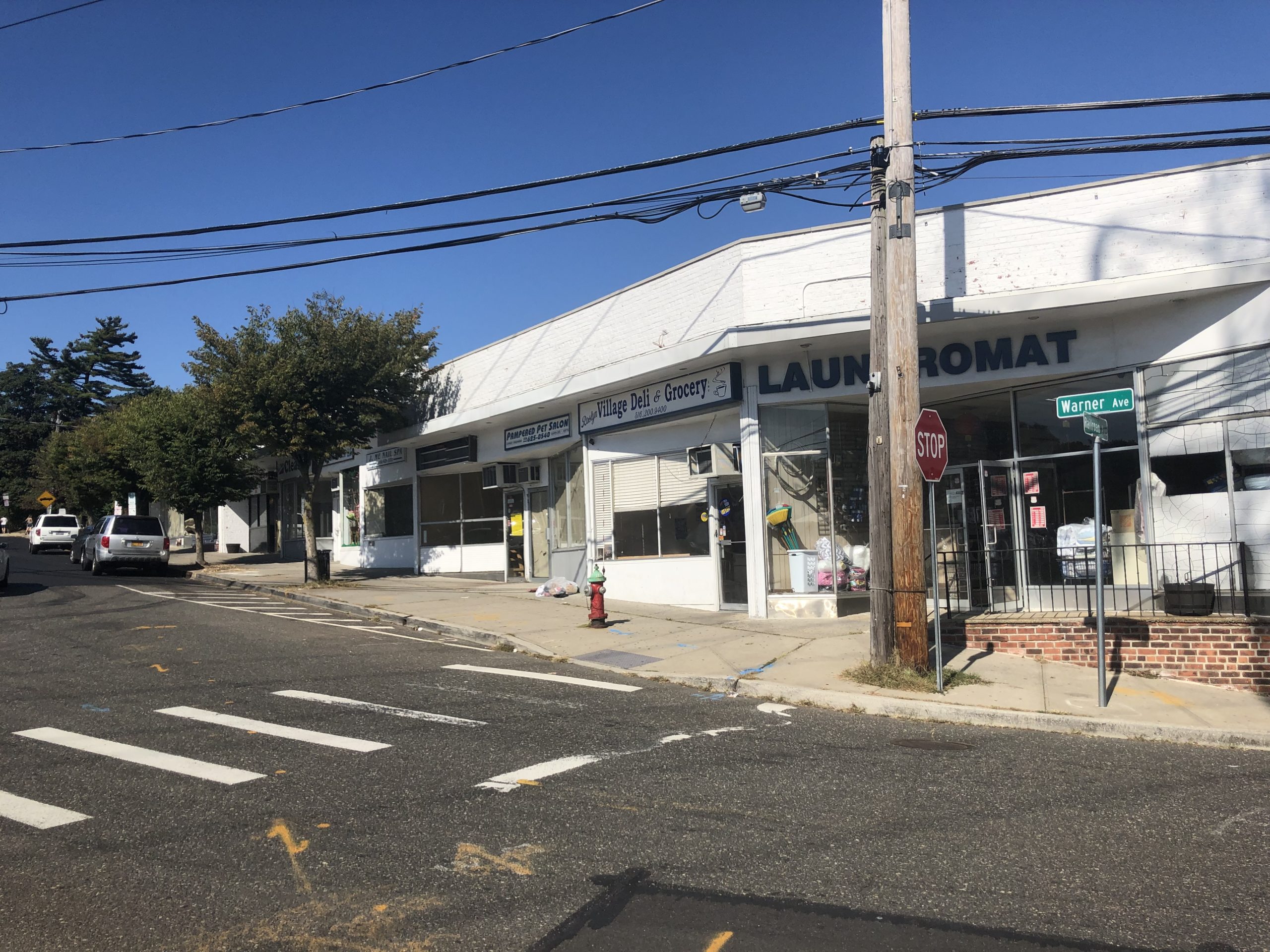Members of the Village of Roslyn’s Board of Trustees voiced support for a much-discussed change of zoning request, while the Roslyn school district again voiced its disapproval for the proposal in a Zoom meeting Tuesday night that drew over 90 participants.
J.K. Equities, headed by Roslyn resident Jerry Karlik, has asked for a zoning change for 281-301 Warner Ave., which currently houses a strip mall full of empty storefronts. If it is granted, the company would submit an application for a mixed-use transit-oriented development on the space, comprising one floor of retail and three floors of 60 residential apartments.
The Roslyn school board has been against the proposal since July 2019, when President Meryl Waxman Ben-Levy claimed that the district was “functioning at capacity.” Ben-Levy also successfully asked the board in February to reschedule another hearing on the matter after the original one was set during religious holidays where residents could be out of town.
On Tuesday night, Deputy Mayor Marshall Bernstein and other trustees voiced support for the idea of changing the zoning. Mayor John Durkin was not present due to a medical issue.
“Our historic village of Roslyn is a visually beautiful village enhanced by a lovely and unique historic district,” Bernstein said. “This holds true for our village as a whole, except the one striking exception, and that exception is the strip mall on this site we’ve been talking about. It’s dirty, ugly and out of character, and the site, in my view, cries out for improvements.”
Bernstein added that a report on the area that the village had commissioned by Paul Grygiel of the Hoboken, New Jersey-based land use and development firm Phillips Preiss Grygiel Leheny Hughes pointed out Roslyn’s lack of affordable rental housing, and that he wanted to work to correct that.
“Multi-family housing is in short supply, and if possible, if it can be done carefully and logically, should be encouraged,” Bernstein said.
Trustee Sarah Oral, who lives in Roslyn Gardens near the proposed site, said she supported the change of zone as a way to “revitalize” that part of the village, which “needs help.”
“The entire time that I’ve lived here, [the site] has been an eyesore,” Oral said. “A mixed use development not only provides housing and people on the street and a vibrant community, it also provides extra retail on the first floor to be patronized not only by the residents above it but the 1,200 residents who live in my development a quarter of a mile away, within walking distance.”
Trustee Marta Genovese echoed Oral’s comments and pointed out that the rental housing could draw younger residents.
“Having been a person that actually grew up in the Roslyn community, I know that it would be very difficult for my own children to be able to find any places to live here,” Genovese said. “It’s a challenging area to develop well, and the idea behind a transit-oriented development is really that it’s anti-urban sprawl legislation. If you placed mixed-use retail and residential in proximity next to transit, then both will flourish and people won’t have to take their cars out of their garage or driveways to do some of the errands they need any day.”
Trustee Craig Westergard closed the trustees’ comments by stating that he thought it could “benefit the community.”
“We have these opportunities for the transit-oriented projects, which seem to me to be a good idea,” Westergard said. “When you drive around Long Island right now, you see an awful lot of housing being developed and there’s absolutely a need for it … so I support the project. I think it’s a good idea because for the most part it doesn’t look like the center is ever going to get off the ground in its current state.”
The board’s reactions were met with a long public comment session, in which Ben-Levy, present on the Zoom call, spoke for eight minutes and implored the board to reserve a vote on the matter until the village could hold in-person meetings again.
“Is now the time?” Ben-Levy said. “Implementing and creating a new zone that may have far-reaching and long lasting impacts during this global pandemic when none of us could possibly know what tomorrow, or next month or next year or next week is going to look like, or how the new norm will take shape, or how this change of zone will impact our school system and our community in the short and long-term, isn’t the most sensible sound or prudent way to go forward when we really have the opportunity to pause and further examine the reports and supplements.”
Ben-Levy did not speak further on the school board’s previous arguments concerning “operating at capacity.” Grygiel’s report did address the argument.
“A common concern regarding new residential development is the increase in residents, and particularly school-age children, due to increased development density,” Grygiel said. “However, [transit oriented development] generally includes only multifamily residential development … the numbers of residents and school-age children on average decrease in more dense developments. This change is more pronounced for [transit-oriented development], as demographic multipliers for transit-oriented development tend to have a lower number of residents per unit compared to non-transit-oriented housing.”
Ultimately, the board chose to continue hearings at its next meeting, scheduled for 8 p.m. on Tuesday, July 21, according to the online village calendar.



